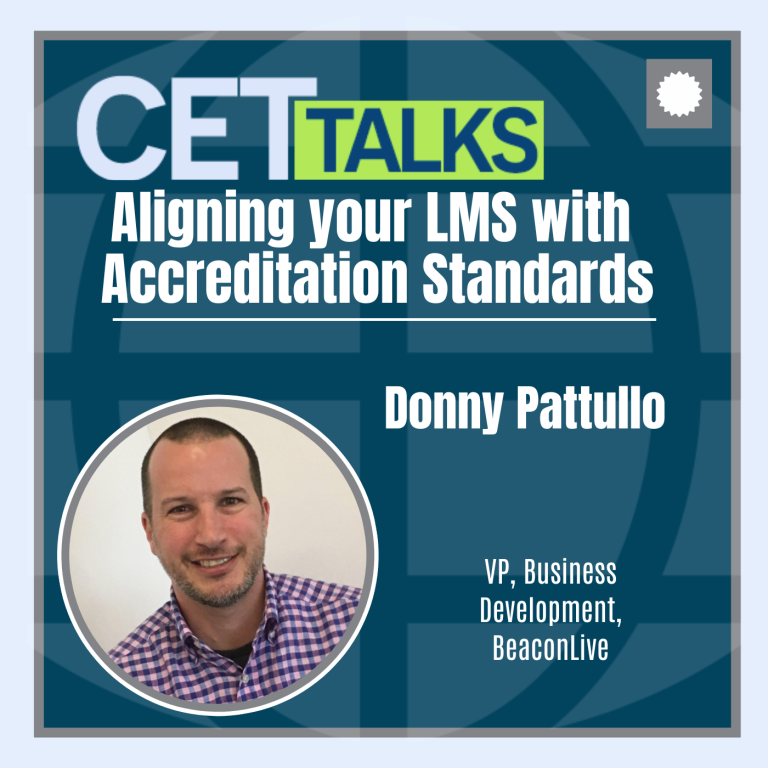Episode 28
- Episodes
- Episode 28: Accreditation Uncovered
.
CET Talks: Accreditation, Learning and Leadership
Episode 28
Jan 8 2025 . 23 MINUTES
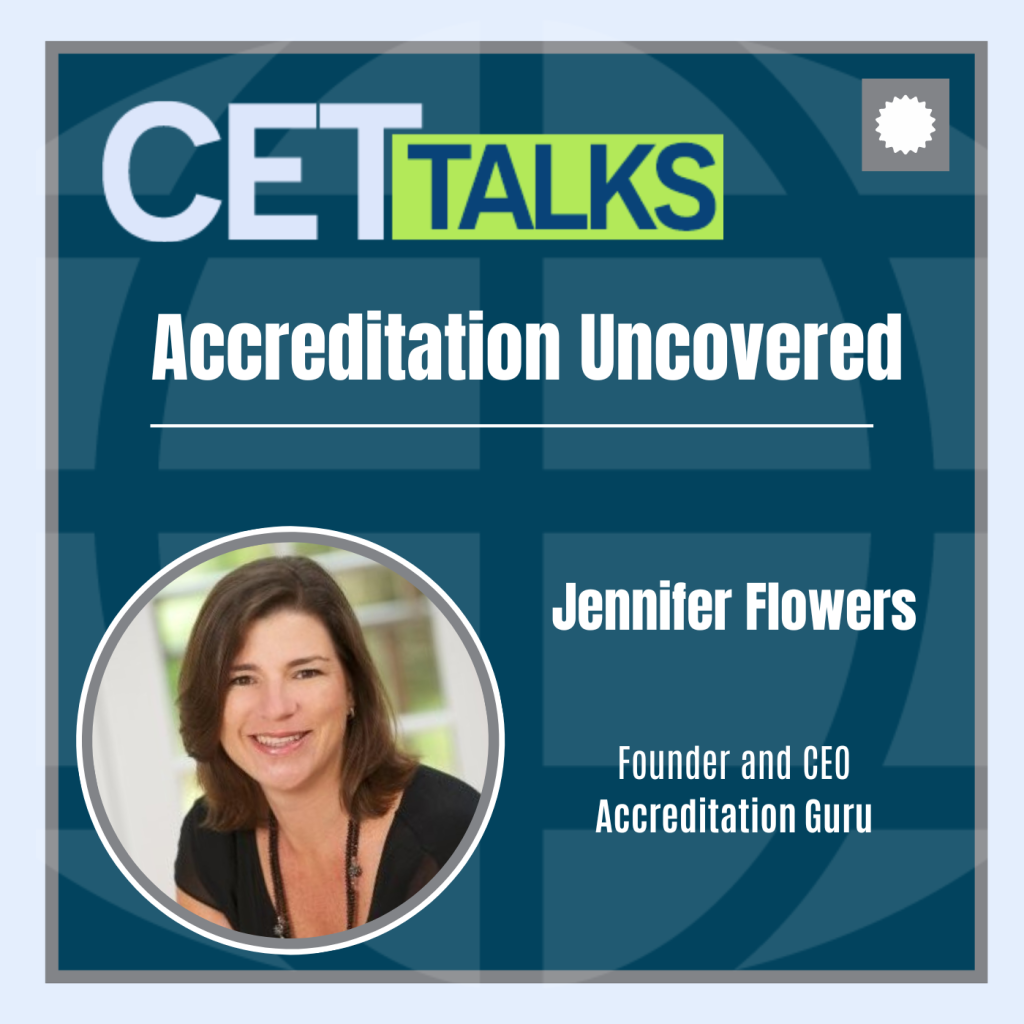
Accreditation Uncovered: Essential Insights from an Industry Leader
Jennifer Flowers, a leading authority in accreditation and the Founder and CEO of Accreditation Guru, joins CET-Talks to discuss the vital importance of accreditation across various sectors. In this episode, Jennifer offers practical advice for navigating the accreditation process, highlights common elements found in diverse accreditation types, and provides guidance on working with consultants. Whether you’re a small organization or a large institution, this episode will equip you with the knowledge needed to make informed decisions about accreditation.
Listen to the Podcast
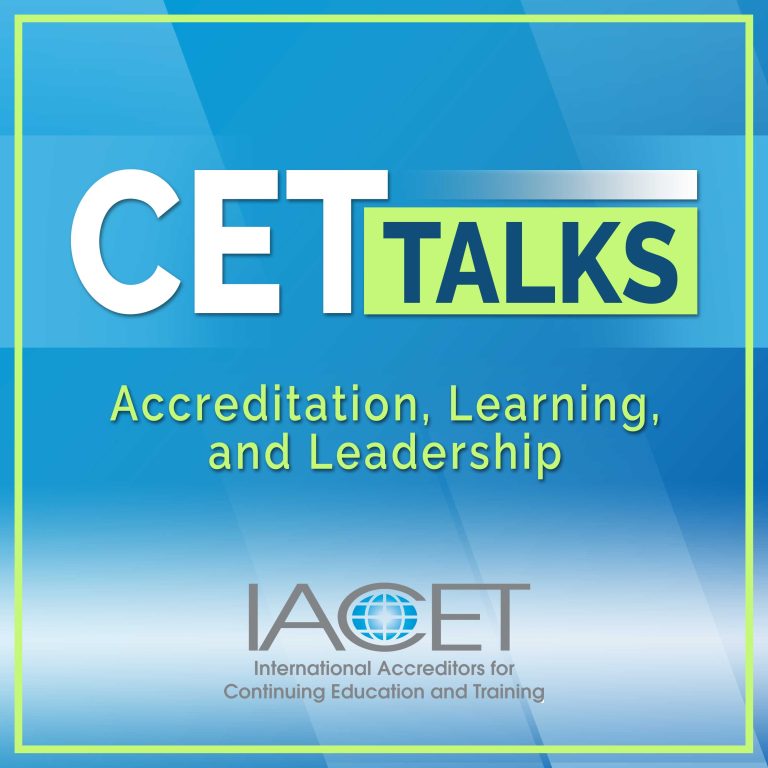
Welcome to CET Talks, the International Accreditors for Continuing Education and Training’s podcast, where we convene thought leaders in the continuing education and training ecosystem to share ideas, research, best practices, and experiences that promote the creation of a world that learns better. Your hosts are Randy Bowman, Interim President and CEO of IACET, and certified corporate wellness specialist Mike Veny.
Jennifer Flowers, a leading authority in accreditation and the Founder and CEO of Accreditation Guru, joins CET-Talks to discuss the vital importance of accreditation across various sectors. In this episode, Jennifer offers practical advice for navigating the accreditation process, highlights common elements found in diverse accreditation types, and provides guidance on working with consultants. Whether you’re a small organization or a large institution, this episode will equip you with the knowledge needed to make informed decisions about accreditation.
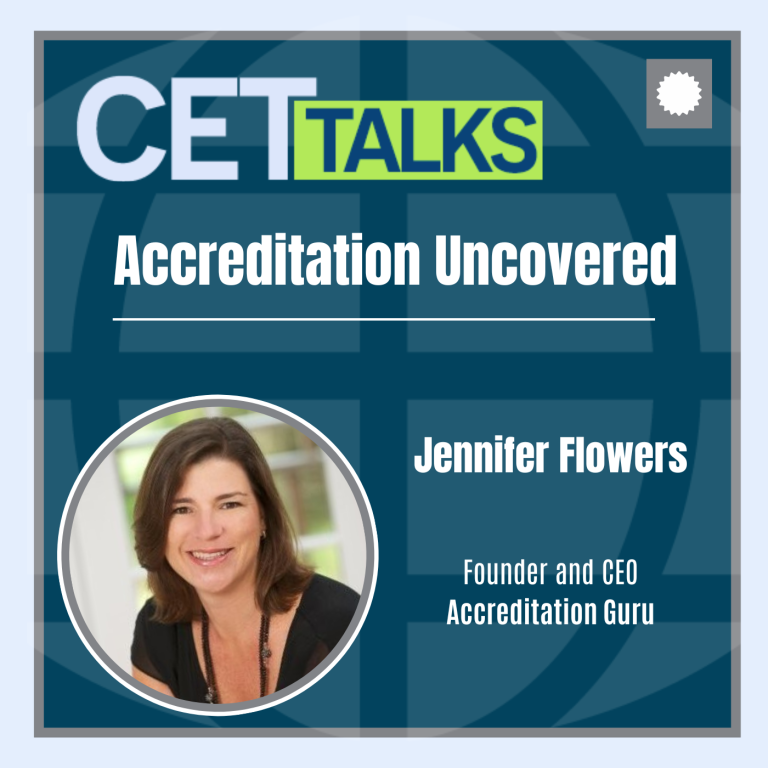
Transcription
Host: Welcome to CET Talks, the International Accreditors for Continue Education and Trainings podcast where we convene thought leaders in the continue education and training ecosystem to share ideas, research best practices, and experiences that promote the creation of a world that learns better. Enjoy the episode.
Randy Bowman: Hello, and welcome to CET Talks. My name is Randy Bowman. I’m IACET’s president and CEO, and I’m pleased to be your host for this podcast. I’m excited to let you know that today I have a special guest host, Bradley Davis, IACET’s Director of Content and Training. Bradley, thanks for jumping in and helping us out today.
Bradley Davis: Absolutely, Randy, really excited to be here. How are things going?
Randy Bowman: Hey, it’s early. I’ve got my coffee, and I’m ready to rock the day.
Bradley Davis: Excellent, excellent. Well, I don’t know about you, but I am absolutely exhausted. For those of you listening, we are recording this less than one week after IACET hosted its first ever AI research-based symposium in beautiful Charlotte, North Carolina. Randy, it really was throwing me back to my days as an early volunteer with IACET, before I joined the team. It reminded me of those two words that came to the front of my mind every single day that I was working on this application. It was eight months, and those words are “overwhelmed” and “frustrated”, because let’s be honest here, accreditation is a lot of work.
Randy Bowman: Oh, I hear you. It is a lot of work. It’s something we hear quite often from applicants. They are overwhelmed. They do feel lonely, they do feel frustrated, and that’s something we really want to do something about here at IACET. If we’re going to shape a world that learns better, we need more accredited providers. Now, those two words are connected to feeling isolated, and the good news is you don’t have to do it alone. You wouldn’t climb Mount Everest without a sherpa. Why attempt this feat without a guide? That’s why I’m pleased to let you know that today our episode is going to focus on guidance, guidelines, and commonalities across the accreditation landscape. We have invited Jennifer Flowers, who is the founder and CEO of Accreditation Guru, a national consulting firm dedicated to helping social services, behavioral health, and education organizations to become successfully accredited. She has an MBA in international management from Thunderbird School of Global Management and a BA from the University California in Berkeley. She is a regular speaker, sponsor, and partner at IACET. As well as dozens of other organizations, she helps support learners across a wide range of topics and industries.
Randy Bowman: Welcome, Jennifer.
Jennifer Flowers: Hi, good morning. Thank you so much for having me.
Bradley Davis: Absolutely, Jennifer. I am so happy that you’re here with us today, but before we dive into the meat of today’s conversation, I want to start at a super high level. If we are not talking about high school or college, why the heck does accreditation even matter?
Jennifer Flowers: That is a great place to start, and accreditation plays a vital role, be it for education companies, social services, behavioral health, for a variety of reasons. First and foremost, it lends credibility and trust. Accreditation demonstrates that the organization has gone through a third party review, meets established quality standards, and adheres to best practices. This builds trust with clients, students, patients, other stakeholders, and for behavioral health and social service providers, it signals adherence to clinical quality and patient safety. For training, in education companies, it assures that the training programs meet learning competency benchmarks. Accreditation also allows for improved access to funding and contracts. So many funding sources require accreditation as a prerequisite for reimbursement. Education organizations specifically may need accreditation to access government grants or to be included in employer reimbursement programs. There’s also the opportunity for improved internal processes and documentation, and this can lend to enhanced efficiencies and a standardization of how work is conducted throughout an organization, which is also very helpful.
Jennifer Flowers: If it’s a very large organization, and it has multiple locations, the improved documentation can also help when you’re training your internal staff or onboarding new people. Also, in talking about earning accreditation and the focus on continuous improvement that it brings, I would say remember that accreditation is not a one-time achievement. It requires ongoing assessment and adherence to involving standards which pushes organizations toward continual improvement. Accredited providers benefit from this by regularly evaluating and improving their operations, services, and outcomes. So, tying it together, accreditation ultimately serves the market, quality, accountability, and commitment to excellence, which are crucial for long-term success. I could go on and talk about this forever, but I’ll pause there. Those are the top ones that come to mind.
Bradley Davis: Absolutely love that, Jennifer. As an employee who loves their benefits and loves their continuing education, it was really interesting to hear you talk about that and the funding sources. Can you talk to us a little bit more about that?
Jennifer Flowers: Yeah, certainly. So for training companies that are out there providing professional education programs, if they’re being evaluated by either the learners or a company that wants to train their entire staff, really, I would say a critical element is looking at are we getting these trainings from an accredited organization or just by somebody who says that they know the topics? I would always suggest that they pick the accredit organization that offers CEUs and that they have been vetted by IACET or another accredited organization. It’s just a great marker of quality.
Randy Bowman: Well, thank you. That sounds a lot like my value speech when I’m trying to convince somebody to go ahead and adopt accreditation. You hit on so many great topics or values; in so many cases, it can be a hard sell. So besides that, the other thing is people often feel overwhelmed. The process is time intensive and sometimes it may even seem invasive to the organization. So, for our listeners out there who might be going through accreditation or who are interested in seeking accreditation, if you could wave your magic wand and give them one tip, one idea that would make things easier for them, what would it be?
Jennifer Flowers: I love having a magic wand. Okay, I would say that you should start with what you already have in place and build from there. Some organizations really tend to look at this process, and it’s a giant mountain of work; they don’t know where to start and get overwhelmed. But focus on what you already have and make those enhancements come in line with the standard. But with that, you need to make sure that your documentation is written for your organization and for your staff to follow, not written for the accrediting body. In end, these are your protocols, this is your documentation, and you need to be following them. Finally, try not to stress too much. It is doable. You might need some help along the way, but it’s a great process, and it really enhances your organization. It will help lift you to the next level.
Randy Bowman: Most people are surprised to learn that IACET actually has a large number of small organizations—one, two, three-person shops. Is there any advice that you have for those really small projects where I’m the CEO, the trainer, I’m doing the registrations, I’m the director of operations, and oh, now I’m the director of compliance, as well, and I’m all the same person. How can you help that person?
Jennifer Flowers: Sure. I mean, we’ve worked with very large organizations, midsized, but we’ve also helped those with a staff of one to five people achieve accreditation and get through the process. It’s really important to have your project management steps written out, clearly defined, and those milestones, and not let day-to-day issues or certain things come up and throw you off track. You really want to start the process and stick with it. Otherwise, you’re going to be working on this for two years or more and nobody wants to be doing that. So, just map all this out, and if you have others on your team, assign clear roles and responsibilities, and work together. You also need to understand the accreditation process and the standard itself. That might mean taking a training course or webinar, so you have that initial overview of what this is going to entail. Then certainly you can also hire a consultant and get help with the process.
Bradley Davis: Well, speaking of hiring a consultant, Jennifer, a quick glance at your website— by the way, love the rebrand—shows that you provide so much support at so many different types of organizations. You’re supporting folks who are going at IACET, Cognia, the Council on Quality and Leadership, national and regional accrediting bodies, just to name a few. I’m super curious though. What common elements have you noticed across all of these different accreditations that you and your team support?
Jennifer Flowers: Okay, well first of all, thank you for checking our website and for the kind words about the rebranding. We’re very proud of that. Really one of the strong commonalities across different accrediting bodies and just different sectors, be it social services, education, et cetera, is that a lot of what this comes down to is, if it isn’t documented, it didn’t happen. So when we’re working with organizations going for accreditation for the first time, and we start drilling down into certain areas that tie the standards, we may often get the response, oh, we do that and we do it well, we just don’t have it documented. Well, now is your time to get that documentation in place. Also you might have the most beautiful policies and procedures available, but if you’re not following them, you’re going to have significant problems becoming accredited. With all the various accrediting bodies, you need to demonstrate the implementation of the standards, the conformance with the standard,
Randy Bowman: Just because you have them written down. If you don’t follow them, the accrediting body isn’t going to accredit you. It’s the doing, not the writing.
Jennifer Flowers: Exactly. And then you’re also not getting the benefit of going through the accreditation process, if you’re not following these new and enhanced policies and procedures and protocols.
Randy Bowman: So I know historically, IACET has been adverse to applicants using consultants, and I know other accrediting bodies can be adverse to applicants using consultants. They really want the organization to embody the standard. There’s kind of a feeling that if you’re using a consultant, then the consultant’s doing all the work, and those policies and procedures may not necessarily be integrated into the fabric of the organization the way we, as an accrediting body, would like. How do you handle that? How do you come in and say, “I can walk alongside you to help you with this project, but in the end you have to own it as an applicant, not me own it as the consultant.”
Jennifer Flowers: Yeah. Well, Randy, that’s exactly it. You want to find a consultant that is going to be your partner on this road to accreditation, not someone who’s going to do the work for you. The really important part is that in the end, it’s the organization seeking accreditation that needs to own the process, implement the standards, follow their own internal policies and procedures. When you’re doing that, you will then be in a better position to practically maintain your accreditation and be ready for re-accreditation. The heavy lift should come the first time you’re going through this, but then if you’re maintaining that standard of quality and adherence with the standards, your re-accreditation should be a much smoother process.
Randy Bowman: I know that you serve several different industries, and there’s a lot of accrediting bodies out there. Sometimes it can be difficult, as an applicant or as someone seeking accreditation, to know which accreditation is right for them. How do you help guide people to find which accreditation is the best fit for that particular organization?
Jennifer Flowers: Sure. Well, we actually do that quite often. People will come to us and say, “Okay, I either have to get accredited because of a requirement in my field, or I know that this is a really important process that will help to elevate our organization and our internal procedures. I want to do this, but I don’t know where to start.” So, it’s really about talking to the folks within that organization; what are their programs and services, what are they doing? Who’s their target market? Are there any requirements, let’s say from a funder, for a particular accrediting body or a particular type of accreditation? Then it’s teasing out and speaking to them about what might be the best fit. Different accrediting bodies have different approaches. Some are much more prescriptive in their standards, others are not. Some are a much bigger process, may have a better reputation organization-wide, others are smaller, more focused, kind of a segmented accreditation, if you will. But that’s not going to fulfill all the requirements and needs that an organization might have. It’s hard to give a specific answer, because we do work with so many different accrediting industries. Although, I will say to anyone out there listening, our team would be happy to speak with them about the road to accreditation, what might be the best fit, how they can approach costs, and how to make those steps up the accreditation mountain.
Bradley Davis: Jennifer, that makes total sense. It’s so interesting because when I took this project on back in 2018, over five years ago now, I really could have used that guide to go through this event. I don’t know if you know this, but IACET has been working on some guidelines that we provide prospective applicants for working with accreditation coaches, mentors, dare I even use the word guru. But one of the things that really stuck out to me in this document is that it’s very descriptive, kind of almost ethereal. So, I’m getting a little bit existential here, try not to judge me for it. Acknowledging that your response may be a smidge biased, when it comes to looking for that accreditation consultant, outside of finding someone who’s going to be your guide, your coach, your partner, what are those skills that you want that person to have?
Jennifer Flowers: Well, you want them to be experienced, to know what they’re doing. The key questions to ask are, what is your experience with this accrediting body that I’m going to be working with; the number of years of experience and the success rate. Now, with that, I’m very proud to say that Accreditation Guru has just celebrated our 15th anniversary, and during that time we have a 100% success rate helping organizations achieve IACET and any other accreditation that we have undertaken. However, I would caution anyone out there to be wary if there’s a consultants saying that they guarantee that you’ll be become accredited. Whenever I mention our 100% success rate, I always follow up by saying, “I cannot guarantee it.” It’s up to the organization to do the work and implement the standards. They need to own this process. Those are the keys.
Randy Bowman: That’s very insightful and great advice, I think, for those out there looking for help along their accreditation journey. Jennifer, one of our favorite questions to ask every one of our guests is, what does a world that learns better look like to you?
Jennifer Flowers: Ooh, I love that. Okay. Actually, when I began my career in accreditation, oh, so many years ago, it was in the arena of professional continuing education. I’ve always personally been a strong believer in lifelong learning. So to me, a world that learns better is one where education and learning are more accessible, personalized, and integrated into all aspects of life. Education should be universally available. So regardless of a person’s geographic location, socioeconomic status, or personal circumstances, they should have access to quality learning and not just confined to schools and universities, but continuous lifelong process. It’s also where learning experiences are personalized to fit each individual’s learning needs, learning style, the pace at which they learn. And I think that when we have this, learning will help to empower people and help them to advance both in their personal life and in their professional life.
Randy Bowman: Oh, that’s beautiful. That’s beautiful. Thank you so much, Jennifer, and thank you for delivering such an engaging and informative talk with us today. Bradley, what’s one item that Jennifer shared with us today that you’re going to take back with you?
Bradley Davis: That’s a really hard question to answer, Randy. Just one item from that discussion. Originally, it was going to be commonality, but Jennifer said something, two things actually, that stuck with me. If it isn’t documented, it didn’t happen. As someone who’s been in the training space for 10 years now, I know well and truly and fully that in my field, we love to put that cart before the horse. So, it’s a good reminder to pull back a little bit because it’s not necessarily about us. It’s about the people that we work with being able to continue on that legacy. The second thing, and Jennifer, I know you saw my eyebrows raise when you said it, but anytime somebody says, we have a hundred percent success rate, I’m always like, that’s not accurate. You can’t do it, but I love what you said. We have a hundred percent success rate, but it’s ultimately up to you. You are the organization, you are the provider. We are just here to get you over that hump. Randy, what about you?
Randy Bowman: I was very pleased to learn about the commonalities that you were going to skip over. That’s important to us here at IACET. One of the things I like to tell people is that IACET is a great foundation for when you need multiple accreditations, because we’re not industry specific. Sometimes you need to go get a specific industry accreditation. A lot of times, if you have that IACET accreditation already as a foundation, it becomes much smoother. I think it’s those commonalities that allow that to happen. So, I was pleased to hear about those things that are the same across accrediting bodies.
Bradley Davis: That’s awesome. I love it, Randy, and I completely agree. Well, everyone, as we wrap up today’s discussion on guidance guidelines and gurus and the accreditation landscape, we would love to hear from you. How have you leveraged consultants or external experts to accomplish something that seemed impossible? And don’t worry, we’re not going to go check your org chart to make sure that they’re listed. Please share your experiences and insights on our LinkedIn page or on our dedicated CET Talks.org website; that’s CET-talks.org. Your stories can provide invaluable lessons and inspiration for others navigating similar paths. Thanks for joining us.
Host: You’ve been listening to CET Talks, the official podcast of IACET. Don’t forget to subscribe to the podcast on Spotify, Apple podcasts, or wherever you listen to podcasts. To learn more about IACET, visit iacet.org. That’s I-A-C-E-T.org. Thanks for listening, and we’ll be back soon with the new episode
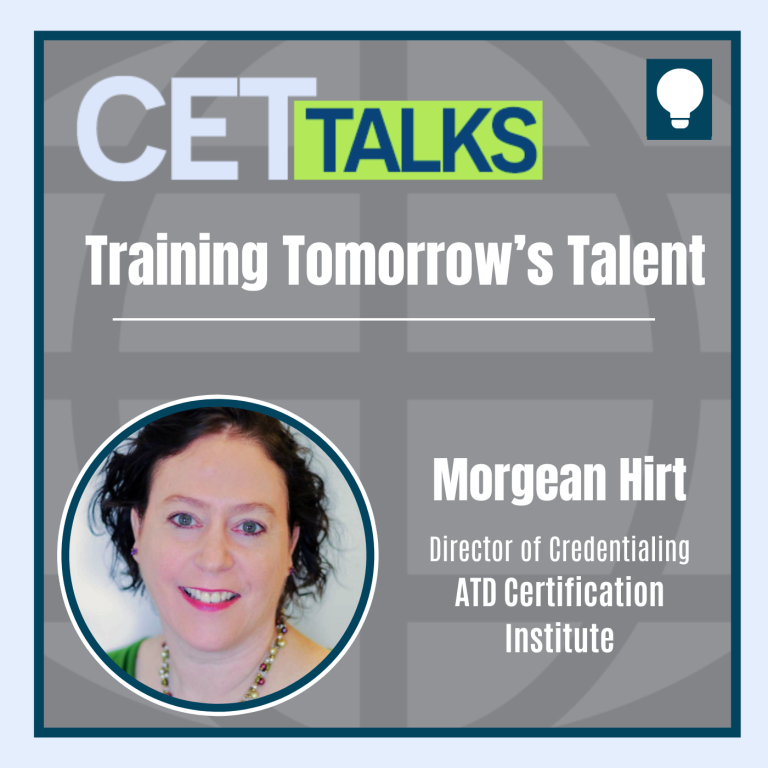
Episode 31: Training Tomorrow’s Talent: Exploring Certification, Standards, and Impact with ATD’s Certification Institute
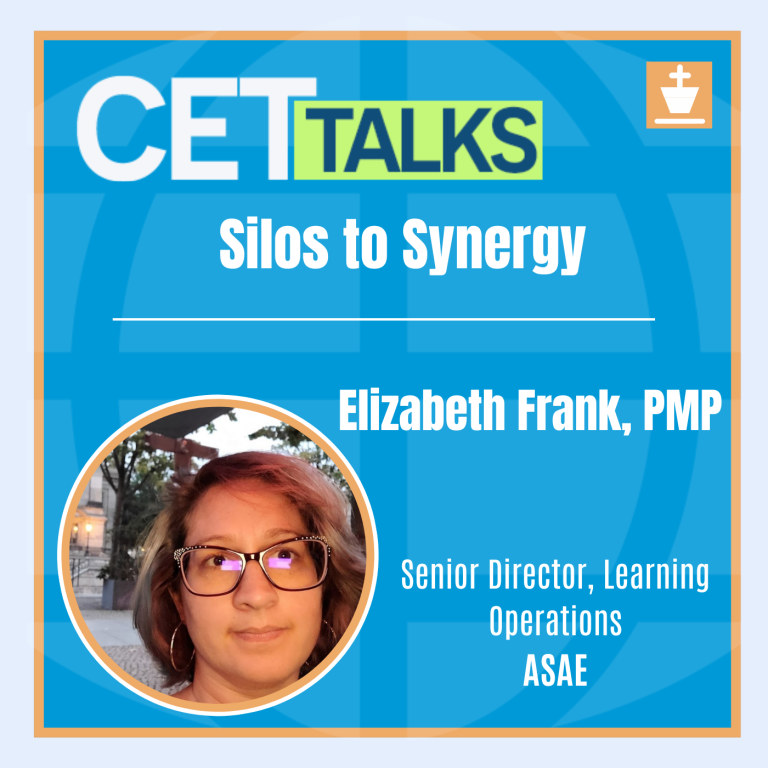
Episode 30: Silos to Synergy: Holistic Approaches to Creating Collaborative Learning

Episode 29: Credentials in Crisis: Challenges and Opportunities in Modern Education Recognition
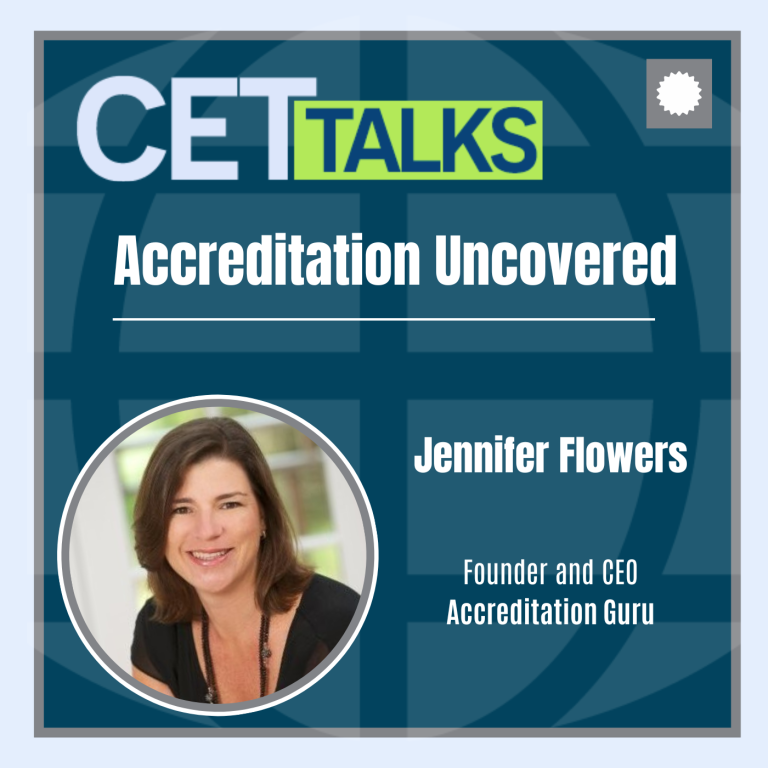
Episode 28: Accreditation Uncovered: Essential Insights from an Industry Leader
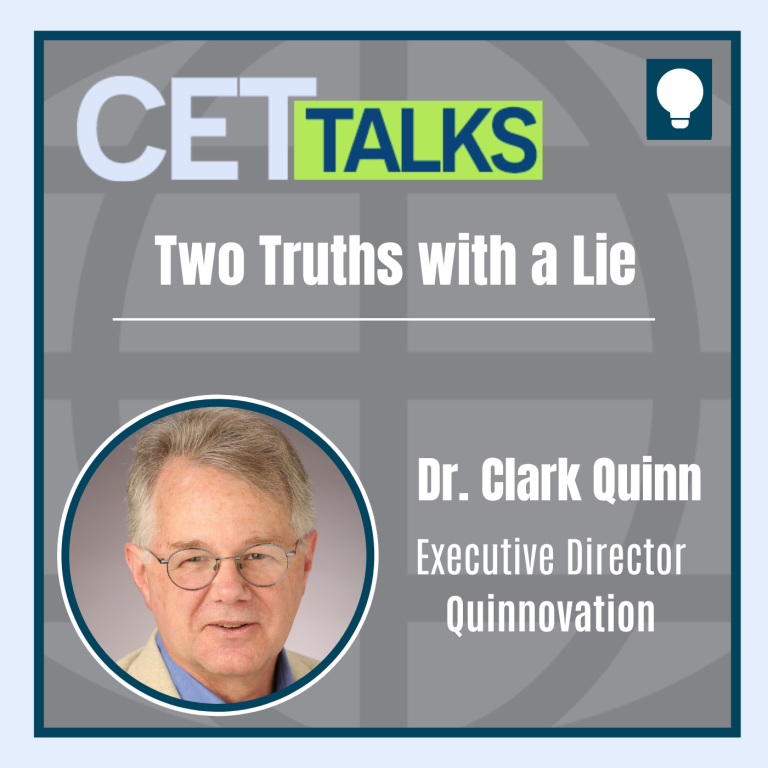
Episode 27: Two Truths with a Lie: Managing the Myths of Modern-Day Learning
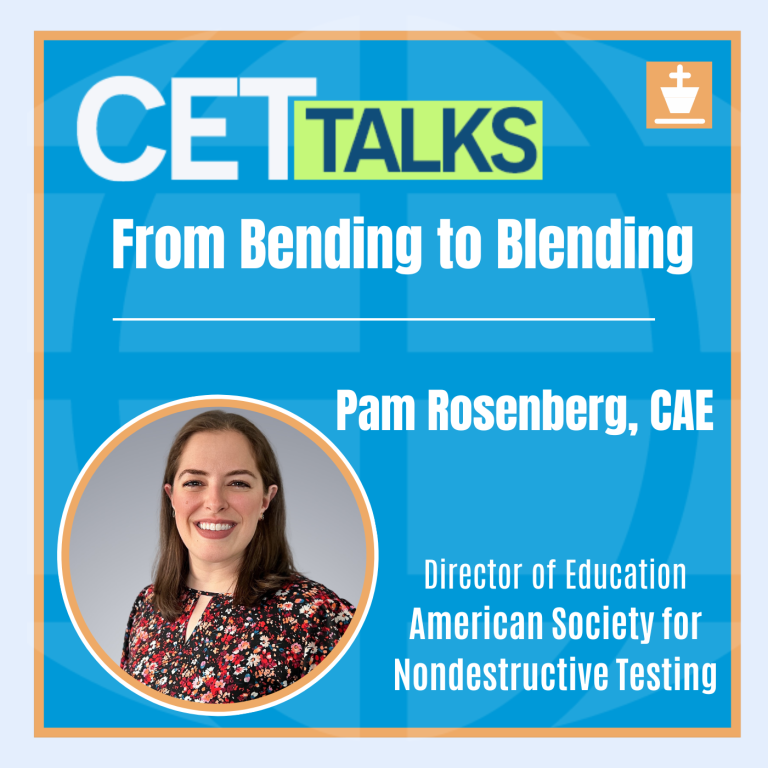
Episode 26: From Bending to Blending: Best Practices in Integrating Externally-Created Content
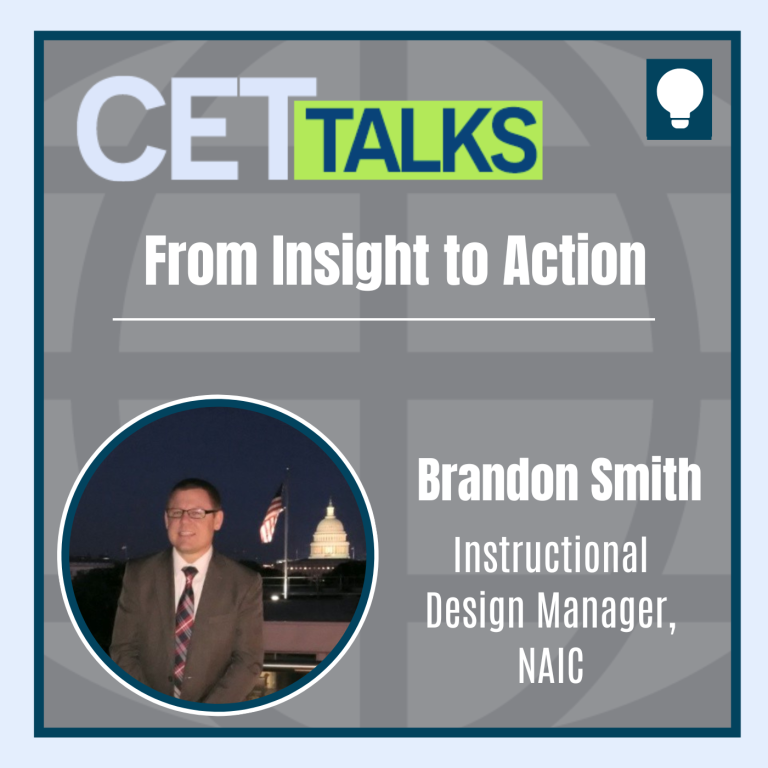
Episode 25: From Insight to Action: Charting the Career Path of a SME-turned-ISD

Episode 24: Cultivating Careers: The Power of Employee Engagement for Organizational Success

Episode 23: Igniting Imagination: Crafting Creativity in Training Environments
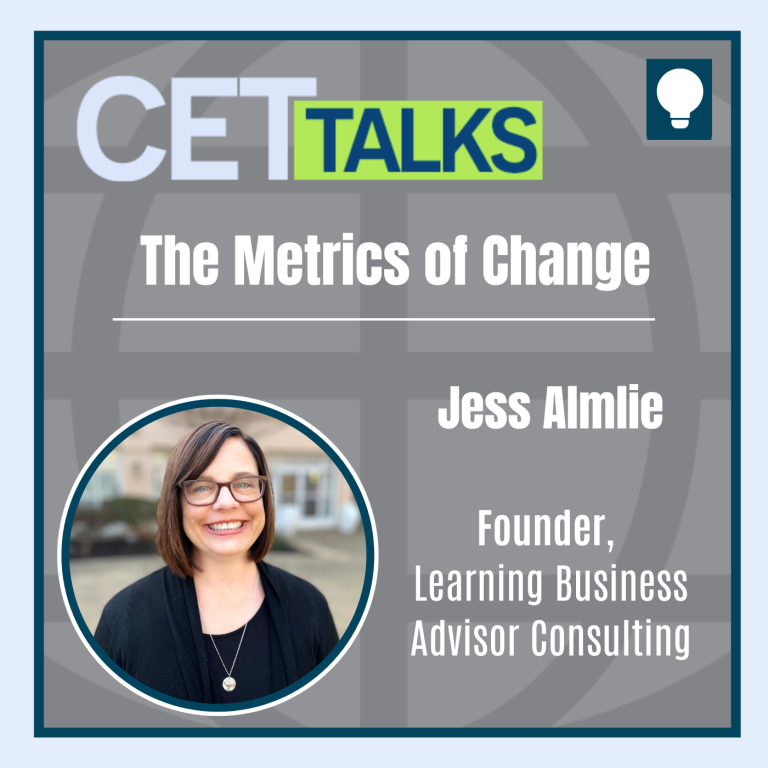
Episode 22: The Metrics of Change: Navigating Purposeful Measurement in L&D
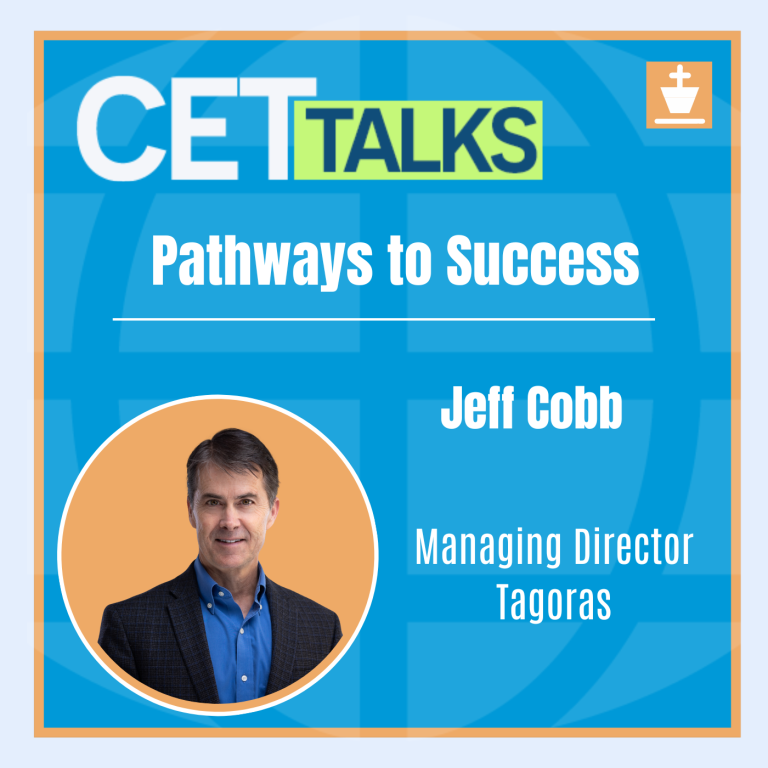
Episode 21: Pathways to Success: The Value of Lifelong Learning through Digital Credentials
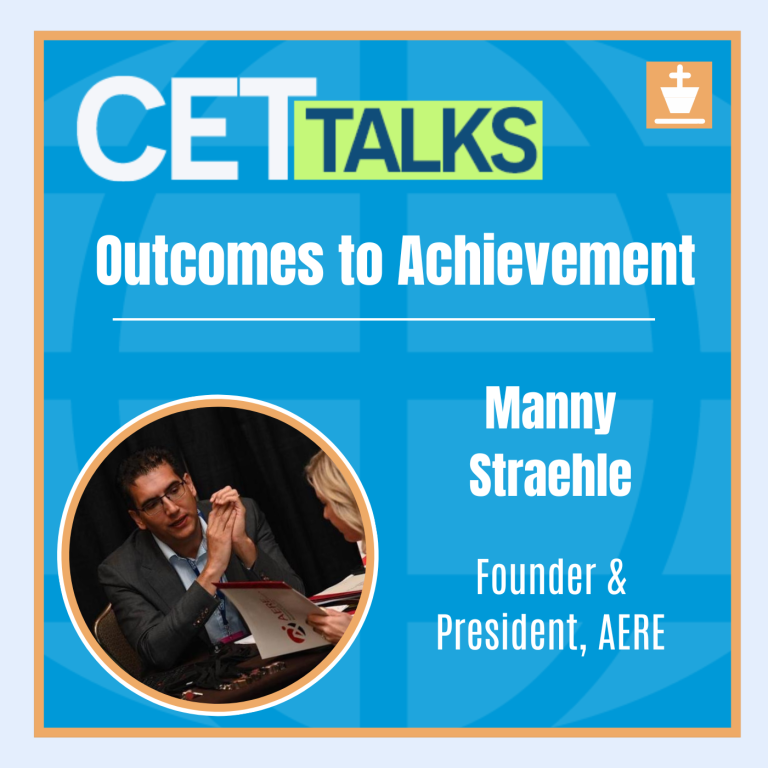
Episode 20: Outcomes to Achievement: Crafting Tomorrow’s Workforce Through Competency Models

Episode 19: Chatting with the Future: Enhancing AI Output Through Prompt Engineering
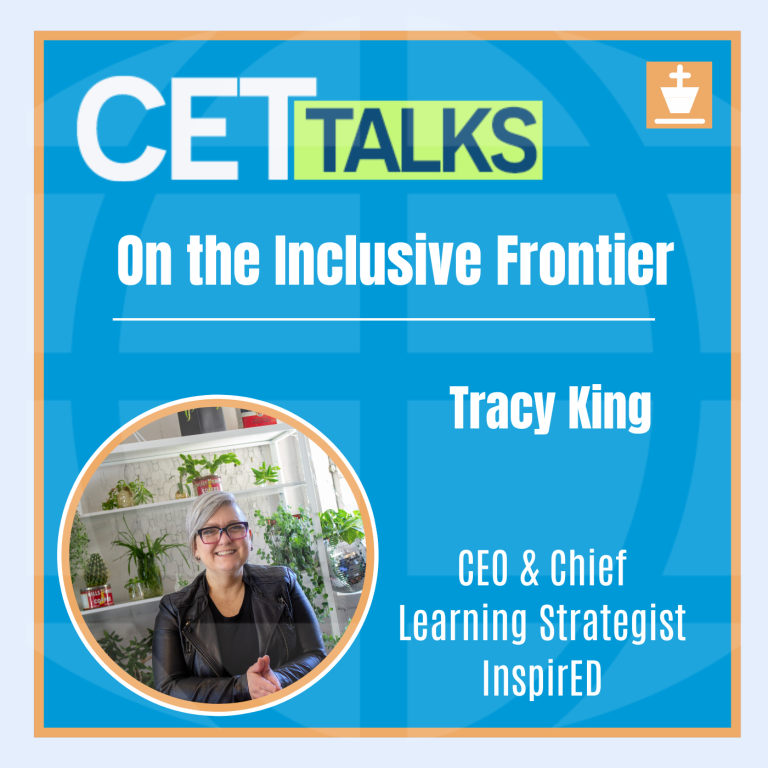
Episode 18: On the Inclusive Frontier: Harnessing Neurodivergence in Modern Training

Episode 17: Designing with Purpose: Strategies for Accessible e-Learning Development
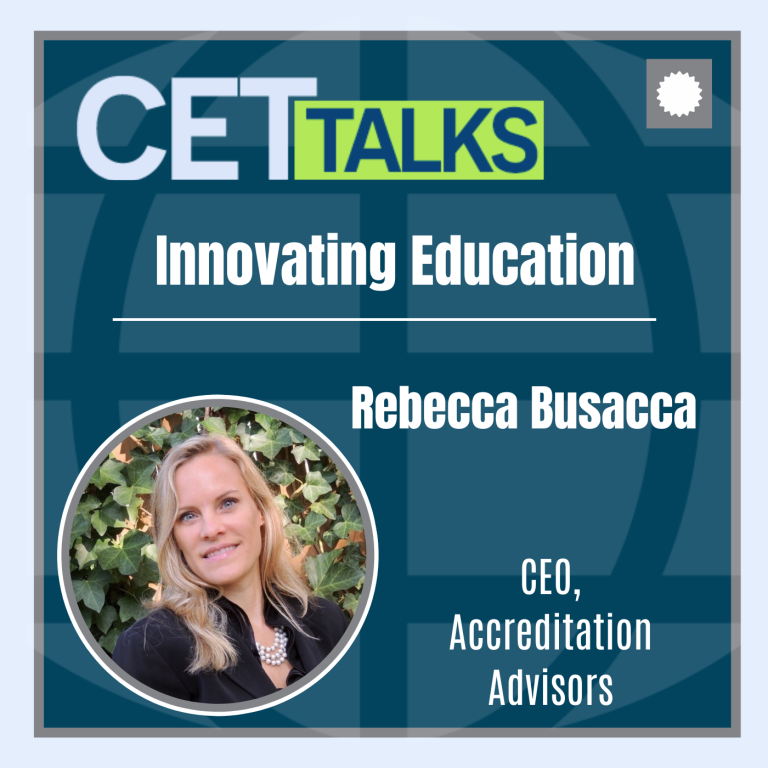
Episode 16: Innovating Education: Navigating Accreditation for Short-Term Training
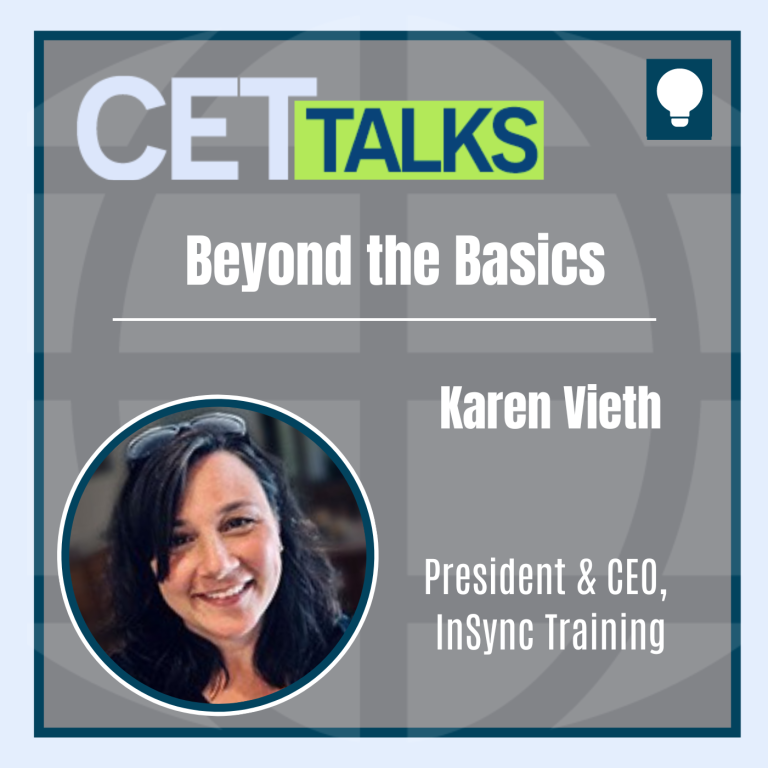
Episode 15: Beyond the Basics: Elevating Virtual Training through Expert Facilitation
